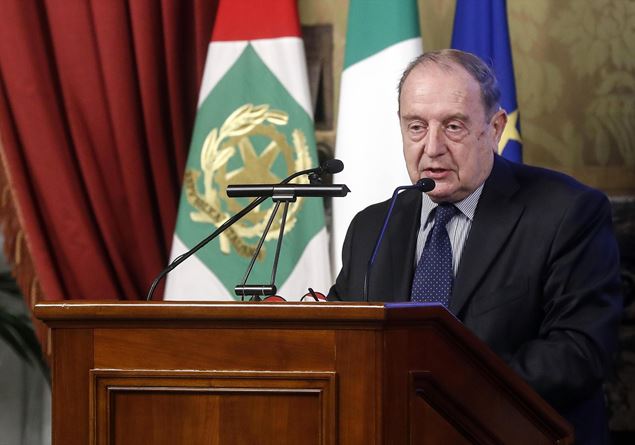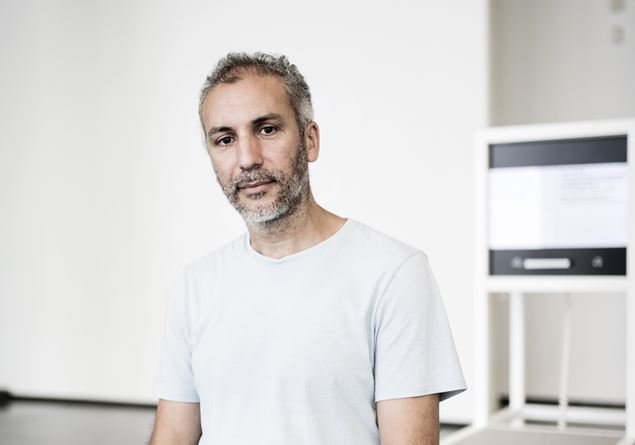We republish the interview that Vladimiro zagrebelskywho passed away on Wednesday at 85, he had released in December 2023 to our weekly on the occasion of the 75 years of the Universal Declaration of Human Rights.
“All human beings are born free and equal in dignity and rights”. Are the first words of the Universal Declaration of Human Rights, of which 75 years of age on 10 December. Among these are the right to life, to freedom of consciousness, of thought, of religion, not to suffer slavery and torture … few examples of a long list that, in spite of the established universality, often see what in the world.
We asked Vladimiro Zagrebelsky, Former judge of the European Court of Human Rights (ECHR) and Director of the Laboratory of Fundamental Rights (LDF) of Turin, to help us understand.
Dr. Zagrebelsky, why is the declaration important?
«For the first time, fundamental principles were set in defense of people. The fact that they are often not implemented, does not question them, but urges to make them effective. The claim of sovereign identities is out of time “, says the former judge of the European Court” for the first time internationally, a declaration is written that establishes what are the rights of people, peoples, states: fundamental rights, not derogable from national practice and legislation. It is a document of political intent, not binding for the States: the subsequent treaties will be and, for Europe, the European Convention of Human Rights of 1950. But I would not underestimate the importance of the step that is made by putting the concepts on paper: before in 1789 in France, with the revolution, they declared themselves the same men, there was a regime, never questioned, in which the inequality was sanctioned by law.
Is it true that he has a western perspective?
«It was called universal but it was not such: in the United Nations there were only 58 countries and the decolonization process had not started. Today the UN countries are 193, but still large parts of the world, with cultures other than the western one, have other conceptions: there is an African card and also an Arab card; There is the interactor declaration of the Latin American countries. China and India do not participate in this universality. The right to life, on paper by all accepted, does not prevent Iran, the United States and China from applying the death penalty. Universality is an ethical proclamation that has a long way to go in concrete “.
Is the protection of human rights regressing?
“The duration and hardness of the wars, not only in Ukraine and the Middle East are growing, but also in many conflicts forgotten in Africa, and in war the rights regress in their concreteness: nobody questioned the 1948 declaration, simply ignores it”.
Is it more difficult to protect the individual’s rights than the family in plural contexts?
“On the one hand, but at least in Europe the national constitutions, the declaration of fundamental rights of the European Union, the European Convention on Human Rights with the Court of Strasbourg make the citizen have a judge to turn to to protect his fundamental rights, if the state denies them: a principle that works, even with slowness due to the many appeals”.
Rights and democracy do not “export”: is the road to wait for its native claim, how do we see in Iran?
«Of course, taking into account that even the movements of internal populations to a state are characterized by a culture. The same idea that the declaration of human rights must expand throughout the globe is Western. In Iran, but also in Eastern Asia, the conception of the individual-family relationship, individual-state is very different from the European one that gives space to the person, as an individual owner of rights also within the family. It is difficult to imagine a change of cultures rooted in predictable times ».
How does this act in contexts in which cultures mix?
«They would serve by all respect and tolerance for the cultures of others, which is not obvious, as episodes of mutual violence demonstrate: when very different cultures are mixed, the tension is easy. In Europe, tolerance finds a limit in the untouchable constitutional principles: those who come from cultures, religions, different traditions must adapt, it is not allowed to violate the rights of an individual in the name of another culture “.
Not even at our house, however, all the principles seem acquired …
«Even in Italy, in the family, at work, we see little and badly applied in the man-woman relationships the equality written in article 3 of the Constitution. Noticing it does not question the principle of equality, but urges a job to make it effective ».
In the West the claim of individual rights is expanded, what does it entail?
“There are those who claim that there is a fundamental right to the Internet, because from there the freedom of information passes, but, as new rights are inserted in the framework outlined starting from the eighteenth century, it is grasped in the disconnect: not on the importance of the Internet, but on the fact of calling it a fundamental right. If we expand them to infinity, we risk trivializing that hard core (life, freedom of expression etc.): also because without a judge there is no right, but a political need for which you fight “.
Sovereign counter –
“In several states part of the public opinion claims national identity against the so -called” claims of Brussels “; They forget that in Brussels there is a parliament elected by everyone. In Poland, in Hungary, but also in Italy, there are those who refuse the European project to harmonize fundamental rights made necessary by freedom of circulation. Think of the freedom of movement for reasons of work or study: the boys move, then get married, form families with children elsewhere, without harmonious legislation continuously arise problems. In reality we are already European citizens. These closures are out of time, life is faster ».
Is the separation of powers also under discussion?
“Fortunately, in Europe the theme is a minority, it mainly concerns Poland and Hungary, but it is necessary to supervise because you soon go back: think of the language and substance of anti -Semitism. It would have been unthinkable that certain words and certain concepts returned and instead … We must study history: the EU was not born only for economic purposes, but also on common ideals. And because the Shoah was not forgotten or ignored ».











